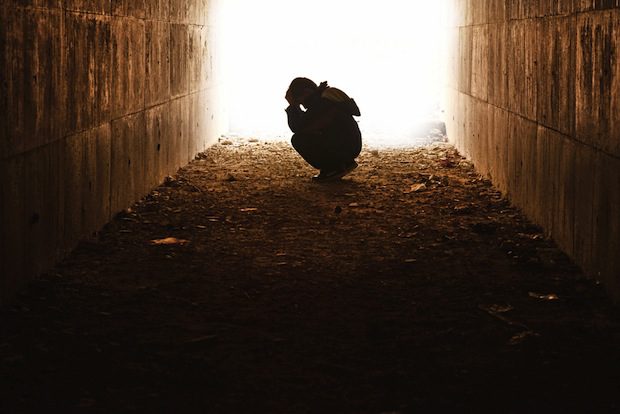Poor And Foolish

Fascinating story on All Things Considered yesterday: a first-person account of poverty by a teenager in New York City. The teenager, Jairo Gomez, lives in a one-bedroom apartment with eight family members. His family is $15,000 below the poverty line. Excerpt:
That kind of scares me. I’ve seen articles posted on Facebook about how unlikely it is to get out of poverty, how poor people usually stay poor. If I don’t get an education, I’ll be stuck like my parents.
But I haven’t always been able to make school my priority. When I was younger, I felt like a robot. All I did was go home and help baby-sit and clean. I never had that freedom before — to be able to hang out and skate with my friends. So in ninth grade, I started cutting every day.
Then, when I was in the 10th grade, for the second time my mom started asking me if I could stay home from school to watch the kids. If I said no, most of the money she would make would go to a baby sitter.
I failed every class that year. That made me finally realize that if I ever wanted to graduate, I needed to be in school.
Notice the language: “I haven’t always been able to make school my priority.” Not, “I haven’t always made school my priority.” A slight difference, but a meaningful one. The more the story goes on, the more you see that the family is stuck in a fatalistic mindset. Things just happen to them. Like the mom getting pregnant four times after her husband, Jairo’s father, left. Excerpt:
I asked my mom why she had so many of us.
“With each pregnancy, I accepted it and let it happen,” she says. “And I felt happy, but I never thought, ‘This son I’m gonna have, I’m gonna educate and motivate to become a doctor, or this daughter I’m going to have I’m gonna motivate to become a lawyer.’
“The job of the mother is to feed and clothe them, to give them love, when maybe I didn’t have time to give them each enough love,” she adds.
It gets me mad that my mom works so hard. And there are people out there who are just born into it. They make money like nothing. They don’t have to clean houses, wake up early, drain themselves.
This brought to mind what a friend of mine who lives in an inner-city neighborhood and does missionary work among the poor told me: that the greatest obstacle the kids he works with deal with are in their own minds. They believe that people who are better off than they are came by it dishonestly, or simply by fate. It doesn’t often occur to them that the choices they make — to drop out of school, to have multiple children out of wedlock — have anything to do with their chronic poverty.
You don’t see this in the written version of the story, but at about the six-minute mark, after the quote above, Jairo says, “I needed to make money for myself, so I took a week-long carpentry job. I knew I’d be making less than minimum wage, and I’d be missing school, but I was failing the second trimester anyway.” Yes, he failed. Jairo later goes to his English teacher, who tells him that he could have pulled out the semester if he had stayed in school. But he didn’t. So there he is.
Again, the apparent belief that things just happen to people seems to be a key factor in this family’s miserable situation. Cause-and-effect doesn’t appear to occur to them. How do you break out of that, if you’re Jairo or his sisters? Gods of the copybook headings, and all that…
Subscribe for as little as $5/mo to start commenting on Rod’s blog.